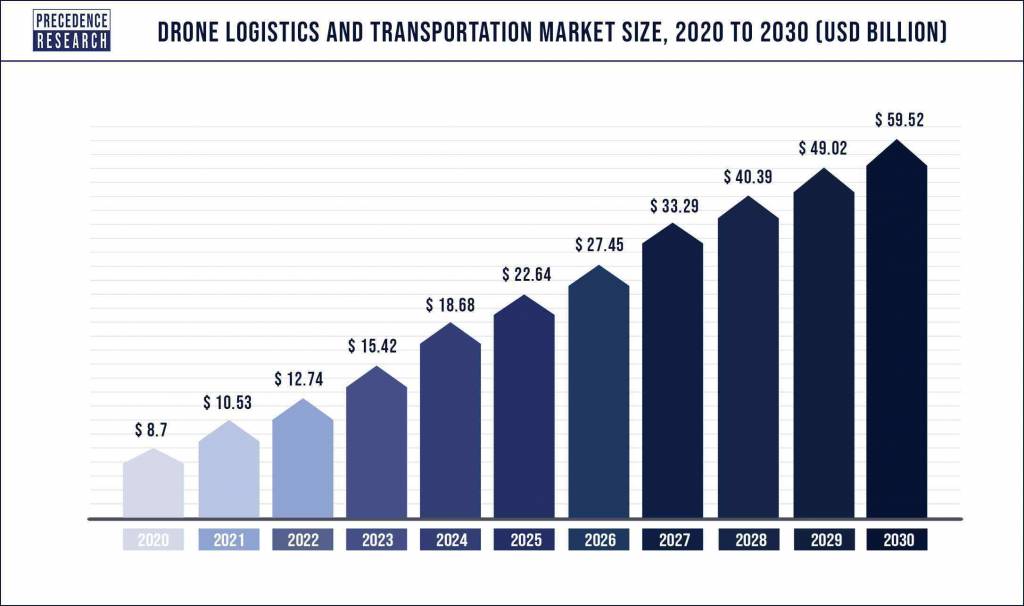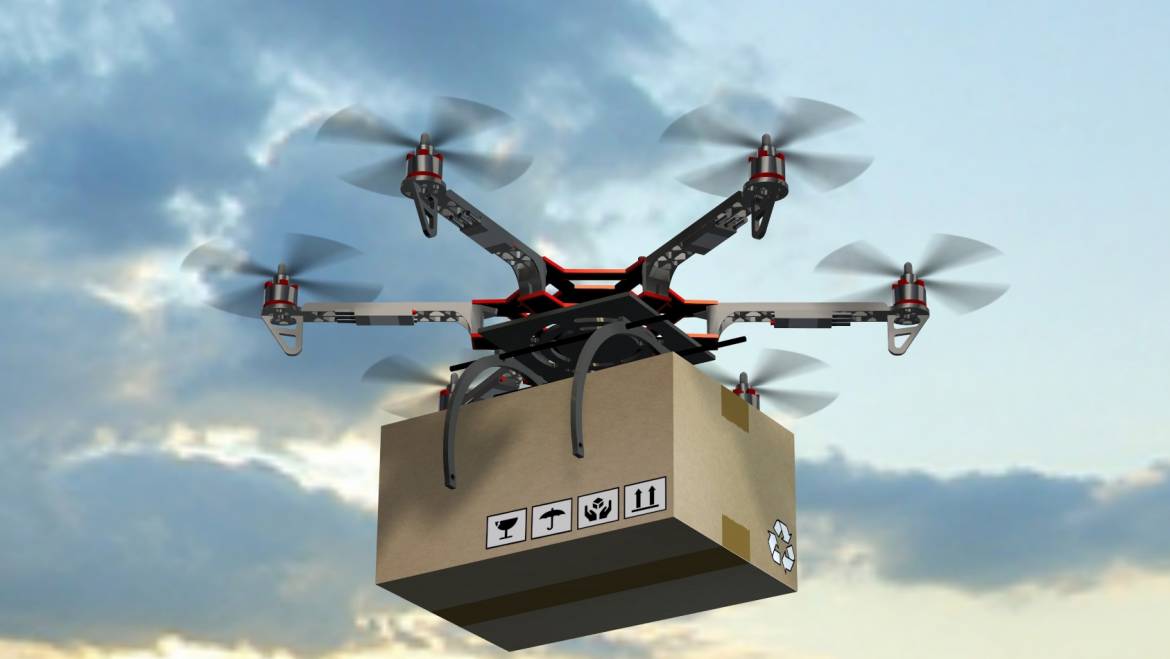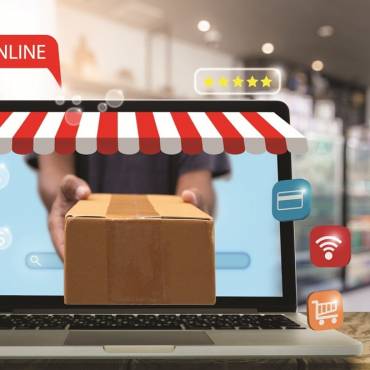It’s not a bird or a plane — it’s an unmanned aerial vehicle (UAV), otherwise known as a drone. N&D Transportation Company will explain the advantages and disadvantages of drones in logistics.
While initially designed for military use, drones have begun to make their way into the commercial sphere. Drone photographers might use them to capture footage, while recreational pilots may simply enjoy getting a bird’s eye view of the world.
For the logistics industry, drones hold the potential to deliver lightweight packages faster and more efficiently than trucks. And several businesses, including Amazon and Walmart, have already launched drone delivery services in some regions.
Below, learn the potential benefits and drawbacks of drone delivery and learn what the future of logistics could hold.
How Do Drones In Logistics Work?
The specifics of drone delivery can vary from company to company. For example, Amazon drones are autonomous drones, meaning they can fly without an operator. On the other hand, Walmart’s drone delivery service employs certified pilots.
In general, however, drones can only deliver small packages within a short range. The FAA currently caps drone deliveries at 55 pounds per package, and most drones can only operate within a limited range — Amazon’s drone delivery service has a seven-and-a-half-mile drone delivery radius.
Still, with new innovations, drone delivery could become a more widespread solution for local deliveries. Here are some of the pros and cons that could come from introducing drones in the supply chain:


The Advantages Of Drones In Logistics
More Cost-Effective
According to Forbes, drone delivery could be up to 90% cheaper than vehicle-based services. Not only could this help customers enjoy smaller shipping fees, but it might also improve your bottom line.
Plus, the cost of drones could be cheaper to obtain and maintain than traditional delivery vehicles, like trucks.
Less Traffic
With nearly 50% of United States workers back in the office, traffic continues to burden commuters.
However, drone delivery holds the potential to take several delivery trucks off the highway and free up roadways — thus, potentially leading to less traffic.
Faster Delivery
Speaking of traffic, drones don’t need to worry about stopping at red lights or navigating winding country roads.
Drones can move through the sky and potentially take more efficient routes than those vehicles can reach — which could lead to faster delivery times for consumers. Plus, some drones can reach speeds of up to 55 miles an hour. And according to Walmart’s website, their drone service could deliver groceries in as little as two hours.
Drones In Logistics Are More Environmentally Friendly
A 2022 study published in Nature indicated that drones may consume around 94% less energy per parcel versus trucks and reduce greenhouse gas emissions by around 84%.
While the trucking industry continues to look into alternative fuel sources, drone delivery could offer a more environmentally friendly local logistics solution.
More Accessibility
In rural or hard-to-access areas, drone delivery could improve access in underserved communities. Plus, some drones don’t need to land to make their deliveries, which could prove ideal for delivery areas with potentially hazardous terrain.
The Disadvantages Of Drone Delivery
Regulatory Issues For Drones In Logistics
Drones need to comply with local regulations on unmanned aircraft, which can be highly restrictive.
According to The Verge, Amazon’s drone delivery service delivered to fewer than 10 households in its first month of operation. This was largely due to FAA restrictions, which restricted the ability of unmanned drones to fly over roads without an escort.
Safety Concerns
Using drones for delivery may also pose a safety concern. Drones could collide with aircraft, people on the ground, or even other drones.
For example: In Australia, a food delivery drone from Alphabet (Google’s parent company) crashed into power lines and caught fire in September 2022. And according to Insider, an Amazon drone fell 160 feet from the air and set fire to an Oregon field in March 2022.
Limited range
Just like trucks need to refuel after a certain number of miles, a drone needs to recharge its batteries after a set flight time. That could make drones impractical for use over long distances or flights. So, they probably won’t make nationwide or international deliveries any time soon.
Susceptible to weather
As miniature aircraft, drones are highly susceptible to weather conditions. Heavy rains, wind, or snow could halt deliveries in their tracks. For example, some drones shouldn’t fly in certain weather conditions, like rain, snow, or winds over 10 mph.
While heavy rain or snow could still disrupt on-the-ground deliveries, trucking companies can still operate in mild weather conditions, giving them a potential advantage over drone delivery.
Privacy concerns
Thanks to their cameras, drones could raise a serious privacy concern for some people.
For example, Amazon obtained a patent that would use data collected from drone delivery to make product recommendations. However, according to a poll from The Zebra, 83% of Americans feel that data obtained from drones shouldn’t be used for advertising purposes.
Conclusion: Will There Be A Future For Drones In Logistics?
Drone delivery could become a practical solution for faster, more cost-effective, and more environmentally friendly short-term deliveries.
However, the small size and limited range of drones prevent them from carrying heavy packages or making long-distance flights. Plus, drones could raise potential privacy concerns if the data obtained from flights is used for marketing or surveillance purposes.
Only time will tell what the future of drone delivery will hold. But it could become a viable step in your local supply chain someday soon.
And while no one can truly know what the future will bring, if you need a logistics company to steer you through the here and now, N&D Transportation Company Inc could help you get the job done. Contact us today to learn more about how we can help your business.



